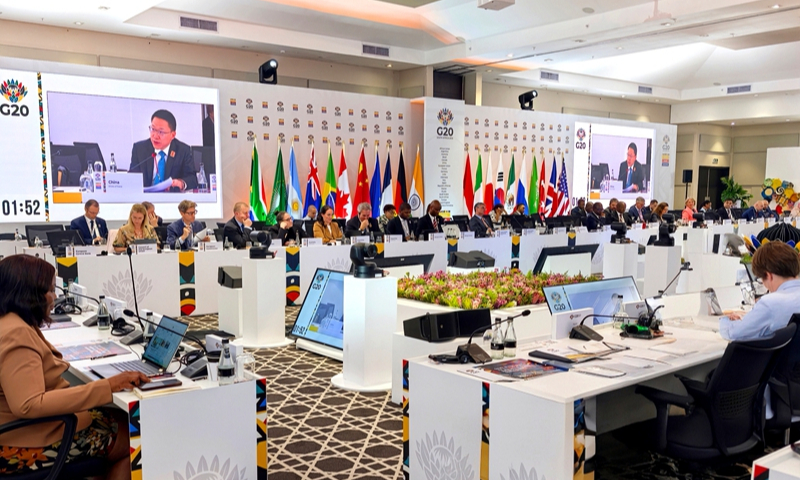China Urges G20 to Champion Free Trade and Multilateralism Amid Global Economic Uncertainty

Durban, South Africa – In a crucial address at the Group of Twenty (G20) Finance Ministers and Central Bank Governors meeting in Durban, Liao Min, China’s Vice Finance Minister, strongly advocated for the preservation of multilateralism and the continued promotion of free trade. His call comes at a time of increasing global economic headwinds and rising protectionist sentiments.
Liao Min’s remarks underscored China’s commitment to international cooperation and its belief that a rules-based multilateral trading system is essential for fostering sustainable and inclusive economic growth. He emphasized that protectionism and trade barriers ultimately harm everyone, hindering global recovery and exacerbating existing inequalities.
“We face a complex and interconnected global economic landscape,” Liao Min stated. “Now more than ever, it’s imperative that we work together, upholding the principles of multilateralism and ensuring a level playing field for all nations. Free trade, grounded in mutual benefit, is the key to unlocking shared prosperity.”
The G20 meeting, held against a backdrop of concerns about inflation, debt distress, and geopolitical tensions, provided a vital platform for finance ministers and central bank governors to discuss coordinated policy responses. Liao Min’s message resonated with many delegates who echoed the need for greater international collaboration to address these challenges.
Specifically, he highlighted the importance of reforming the World Trade Organization (WTO) to ensure its continued relevance and effectiveness. He also stressed the need for developed countries to fulfill their commitments to provide financial and technical assistance to developing nations, enabling them to participate more fully in the global economy.
China’s stance aligns with its broader foreign policy objectives, which prioritize economic development and regional stability through engagement and cooperation. Beijing has consistently championed free trade agreements and multilateral institutions as a pathway to shared prosperity, particularly within the Asia-Pacific region. The Belt and Road Initiative, for example, exemplifies China's commitment to building infrastructure and fostering trade links across continents.
The Durban meeting saw discussions ranging from managing inflationary pressures and tackling climate change to addressing the growing debt burden faced by many low-income countries. Liao Min’s call for multilateralism and free trade served as a timely reminder of the fundamental principles that underpin a stable and prosperous global economy. The challenge now lies in translating these principles into concrete actions and forging a consensus among nations facing diverse economic interests and political considerations.
As the global economy navigates uncertain waters, China’s voice advocating for collaborative solutions and open trade policies will undoubtedly continue to play a significant role in shaping the future of international economic governance.






